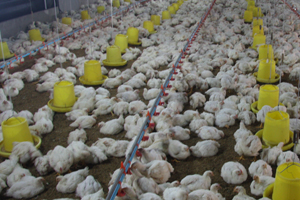Anticoccidials and AGP’s effect on broiler performance

Korean and US researchers investigated the effect of several coccidiosis programs, used in combination with antibiotic growth promoters (AGPs), on broiler growth performance and immune response.
The coccidiosis programs that were investigated included in ovo coccidiosis vaccination (CVAC) with Inovocox or in-feed medication with diclazuril as Clinacox (CLIN) or salinomycin (SAL). The AGPs were virginiamycin or bacitracin methylene disalicylate plus roxarsone.
As a negative control, chickens were non-vaccinated and fed with non-supplemented diets (NONE). All animals were exposed to used litter from a commercial broiler farm with confirmed contamination by Eimeria parasites to simulate in-field exposure to avian coccidiosis. Broiler body weights in the CVAC group were greater at 14 and 32 days of age, but not at day 42, compared with the NONE, CLIN, and SAL groups.
At day 14, the SAL group showed decreased body weight and reduced ConA-stimulated spleen cell proliferation compared with the CLIN and SAL groups. In contrast, at days 34 and 43, splenocyte proliferation was greater in the CVAC and CLIN groups compared with the NONE and SAL groups.
Lymphocyte subpopulations and cytokine mRNA expression levels in the intestine and spleen were also altered by the denoted treatments.
Collectively, these results suggest that in ovo coccidiosis vaccination or coccidiostat drug medication programs in combination with AGPs influences chicken growth and immune status in an Eimeria-contaminated environment.
Source: Meat Science












